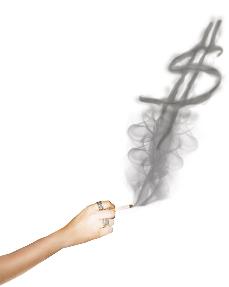‘Sin’ tax: A contradiction

‘Sin’ tax: A contradiction
May 12, 2009
With the current recession, most of us are dealing with loss. Loss of jobs, income and economic stability are becoming our reality. Now many of us will lose one of the only comforts we have left: cigarettes. With taxes on the rise, legal coping mechanisms are quickly becoming unaffordable luxuries.
That’s right – the price of cigarettes may increase yet again. While federal tobacco taxes have already more than doubled, states are considering their own tax increases. California is even considering raising its 87-cent cigarette tax for the first time since 1998.
In a Feb. 23 Sacramento Bee article, Jim Knox, vice president of the Cancer Society’s California division, said, “An increase in California’s tobacco tax is long overdue.” The article noted that 44 other states have increased cigarette taxes 89 times since California’s last raise.
At a press conference in March, Sen. Alex Padilla, D-Pacoima, and Senate President Pro Tem Darrell Steinberg, D-Sacramento, announced a plan to reduce smoking rates in California. This package included Senate Bill 600 – The Tobacco Tax and Health Protection Act of 2009, which would raise California tobacco taxes an additional $1.50.
“This set of bills is a win-win for the state,” Steinberg said. “It motivates smokers to kick the habit and provides a funding source that helps keep us out of a deficit and bolsters valuable programs that are threatened by funding shortages.”
It is no surprise that the state would turn to a tax like this in such tough times. Sin taxes have always been the favored tax when revenue is tight.
A sin tax, according to Investopedia, a Forbes Digital company, is a “state-sponsored tax that is added to products or services that are seen as vices, such as alcohol, tobacco and gambling.”
Sin taxes are often the first taxes to be raised by individual states facing deficits. They bring in extra money for the state and are often easily accepted by the public because “they are indirect taxes that only affect those who use the products.”
Unfortunately, while sin taxes seem to make sense at first, the logic is rather contradictory. These taxes supposedly discourage particular activities like smoking, yet they simultaneously rely on them as a means of revenue.
Along with this contradiction, sin taxes also place an unfair stigma on those who pay them. By referring to these charges as “sin” taxes, they subtly refer to all participants as sinners.
Assuming that smokers don’t quit, this tax increase could potentially provide California with over $1 billion in new revenue. However, while the state may thrive, both the smokers and cigarette store owners will carry the burden of this so-called win-win plan.
While it is true that smokers could quit if they didn’t want to pay the outrageous prices, they should not be selectively targeted. If someone wants to smoke, it is his or her right to do so. It is unfair and un-American to ostracize and persecute a select group.
California already provides public protection for non-smokers. Smoking is prohibited on buses, trains, planes, public buildings, bars and restaurants. Now, it is time to protect smokers. As much as we have the right to stay away from cigarettes, we also have the right to smoke them.
The economy is already causing enough stress. The state now plans to take away one of our few legal vices left. Sin taxes are contradictory and discriminatory. If you’ll excuse me, I’m so flustered, I need a smoke.
Leidhra Johnson can be reached at [email protected]
























































































































